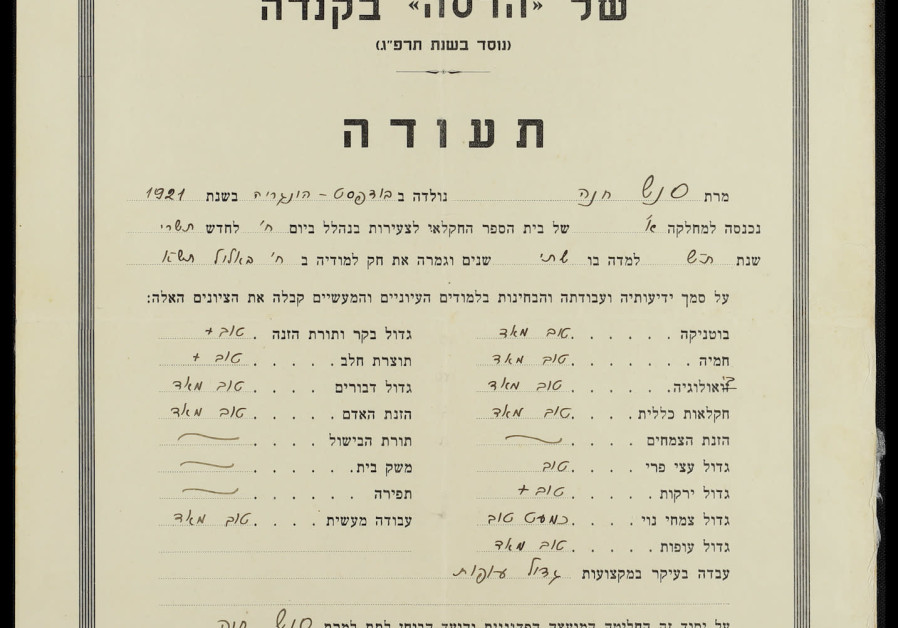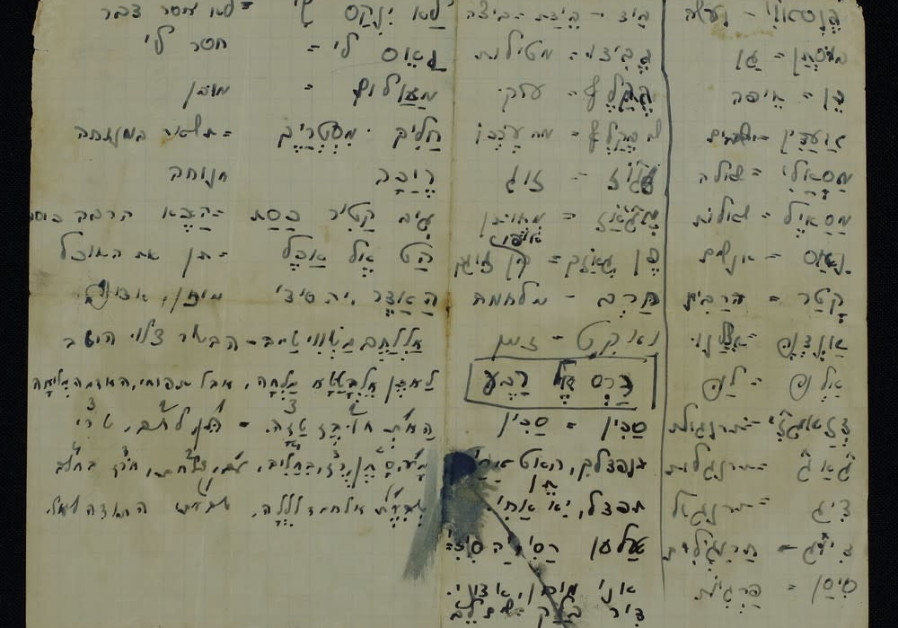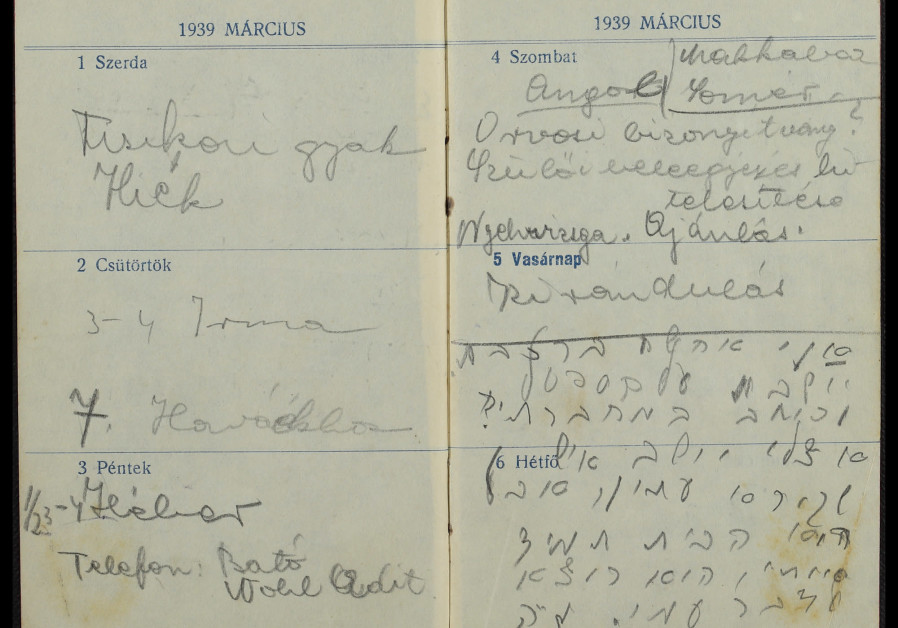Although Szenes was only 23 when she died, she left a wealth of important handwritten materials, such as her poems. The archive also includes documents, such as letters exchanged with her family and documents from her trial. There were also photographs of her personal items and her family.

Hannah Szenes was born in Budapest in 1921 and the antisemitism in Hungary pushed her toward Zionism and she made aliyah in 1939. After spending two years at an agricultural school, she joined Kibbutz Sdot Yam where she farmed as well as writing poetry and a play about life on a kibbutz.

On March 9, 1944, Szenes parachuted into then-Yugoslavia with four comrades and in June, she crossed into her native Hungary where she was caught and arrested by the Nazis.

Szenes was tried for espionage and, as a Hungarian citizen, high treason. She was sentenced to death and executed on November 7, 1944. In 1950, her remains were repatriated to Israel and she was buried with full military honors on Mount Herzl.
The National Library has for years worked to build an archive of Szenes's writings and possessions.
